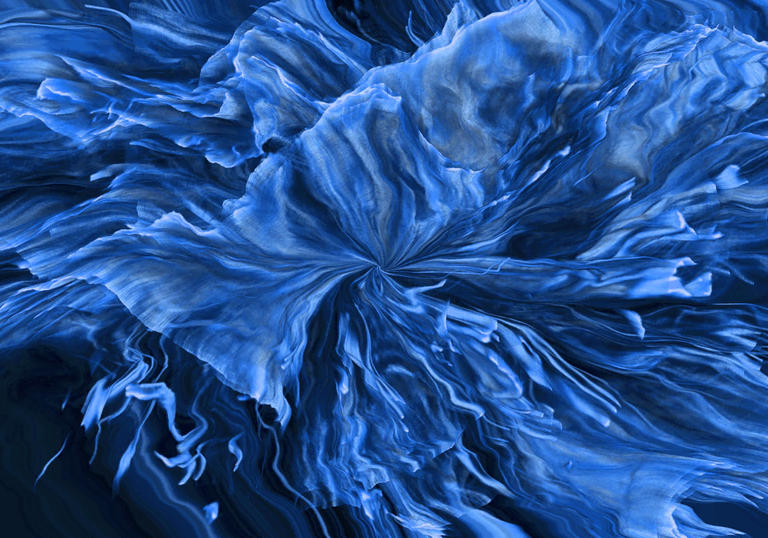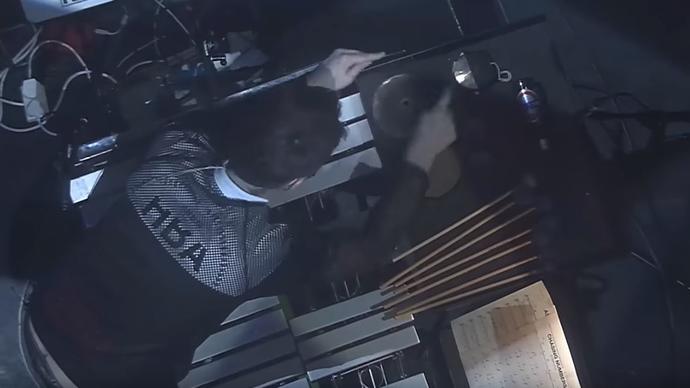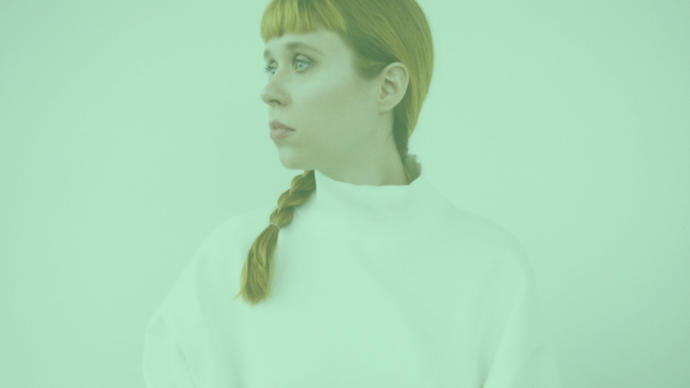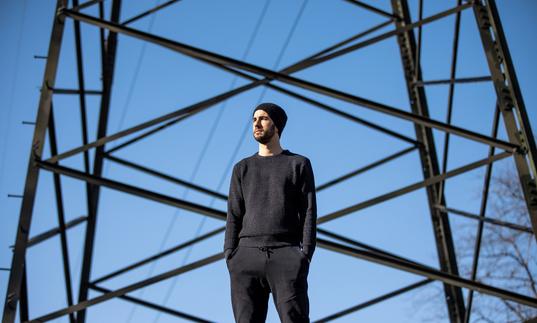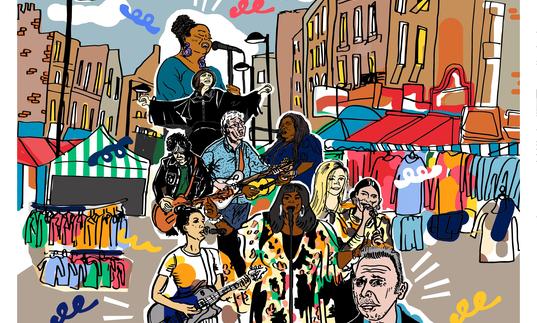London Contemporary Orchestra (LCO) is no stranger to presenting unconventional concert experiences. From Saturday 15 January to Sunday 16 January, the group is trying something completely new again: a 24-hour long concert. Throughout 24, LCO and collaborators are performing a series of works that range from modern classical to electronic music against backdrop of ever-evolving projections. The goal is to create a space that inspires deep reflection.
‘It's going to be a very concentrated place where people can just hopefully unlock a deeper sense of either relaxation or thinking, or it could even be intense thinking,’ says Robert Ames, the conductor of LCO.
The concert’s landmark moments include new performances from electronic musicians KMRU, Actress, and Powell, who each perform for three hours on Saturday evening, Sunday morning and Sunday evening with a group of acoustic musicians. Morton Feldman’s stunning String Quartet No. 2, a six-hour piece, serves as the late-night focal point, and smaller works are scattered throughout the day, creating variation and points of transition between the longest moments of music.
24 continues LCO’s longtime interest in creating new audience experiences of contemporary music. ‘I'm a big fan of not dictating audience behaviour, but creating a space where it's comfortable to behave in a certain way,’ Ames says. The idea of programming a 24-hour concert has been on LCO’s mind for about five years. Ames has always been curious to see how an audience would react to 24 hours of music: ‘I'm super interested to see if anybody's going to stick it out for 24 hours and to see if there are any breaking points for people, if there’s a mass exodus at certain points or loads of people coming at other points,’ he says.
Ames wanted to craft a narrative arc when choosing the pieces that would be played for the event. This is a common programming method for him, but when thinking about 24 hours of music, it was important to him to choose music that allowed for moments of rest and activity. ‘It's not all quiet, gentle music. It's not meant to be that. There are moments where it becomes more intense and challenges that and then it drops back,’ Ames says. The pieces in the concert also exemplify a breadth of music history, featuring pioneering 20th century composers like John Cage, Éliane Radigue and Morton Feldman and modern compositions from artists like Michael Gordon and Mica Levi.
24 also features a different facet of LCO’s work: arranging electronic music for acoustic instrumentation. Ames and KMRU, Powell, and Actress have been working together on ensemble arrangements of new electronic works. KMRU, a Berlin-based, Nairobi-born ambient musician, is putting together a longform piece rooted in the style of wafting, field recording-based music he’s known for and codified on recent albums like 2021’s Logue. Powell’s set takes inspiration from his 2021 Editions Mego album, Piano Music 1-7, which presented a series of process-based, blossoming piano pieces that unfold in dense layers. For 24, the UK-based producer and Ames have imagined a version of this type of generative music for a small ensemble, in which the players receive an electronic score that morphs as they play. And Actress’s set, showcases an acoustic orchestration of a new electronic work that builds off past collaborations between the London-based artist, who’s known for his techno and house-influenced work.
Another major part of 24 is Morton Feldman’s famed six-hour string quartet. Feldman was a 20th century composer known for his ground-breaking work in indeterminate music — a style of composition that allows performers choices as they play, so that each time a work is performed it’ll be different—and extremely long compositions. String Quartet No. 2 is a primary example of Feldman’s longform work that featured patient, glacially paced music. Performing the piece is an exercise in endurance. Musicians play nearly continuously for the six-hour period, shifting imperceptibly between the delicate sounds. For the audience of 24, this moment is a period of rest. The string quartet comes after a brief moment of action from James Tenney’s Never Having Written a Note for Percussion, which is a rhythmic lattice that LCO is performing on Tam Tams.
Other modern compositions on the program include New York composer Michael Gordon’s Rushes, an hour-long work for seven bassoons. Gordon is part of the American post-minimalist movement, which draws on short, repeated musical phrases that interlock and bloom over time, transforming into other melodies and rhythms in the process. Gordon has often written works for multiples of the same instrument, and to Ames, Rushes is one of his best—he describes it as ‘absolute magic.’ Throughout the piece, bassoons swim in and out of each other, growing from gossamer threads into a colourful tapestry.
The program is filled out with a series of other shorter works placed between these major moments, such as other indeterminate-style pieces by pioneering chance-oriented composers John Cage and Alvin Lucier and a meditative work by trailblazing electronic and drone composer Éliane Radigue. They’ll also perform an extended version of producer and film composer Mica Levi’s Thoughts are Born and a piece by violinist and composer Galya Bisengalieva. All of these moments give the concert waves, showcasing a wide swathe of contemporary compositions and many different group sizes and instrumentations.
‘I wanted to resist the temptation to just go fully headfirst into ambient music and to have shape throughout the 24 hours. It's programmed in mind to give people the opportunity to see the things that they really want to see or the moments they really want to come to, but it should work as a 24-hour narrative over the whole time,’ Ames says.
The Barbican Hall will be lit up with ever-changing imagery designed by Hungarian projection mapping artist László Zsolt Bordos throughout the 24 hours. Bordos has long been at the forefront of 3D projection mapping technology, lighting monuments as well-known as the Eiffel Tower. The projections he created for 24 react to the music being played in the Hall in real time: The goal is to create a visual atmosphere that’s as fluid as the music, reacting to shifts in sound.
‘Hopefully, if somebody comes at five o'clock in the morning for two hours, and then comes back at midnight for an hour, they'll see something that feels familiar but looks different,’ Ames says.
With all these elements, the goal is to form a welcoming space for rumination. Situated in the dead of winter lull when the warmth of the holidays has subsided and the beginning of a new year is upon us, this is an event that provides space to take a pause and soak up our surroundings. Listeners can come and go as they please, hearing their favourite music or discovering something new. At the heart of the experience is music and visuals that let us focus on small details as well as the big picture, giving us space to simply be.
